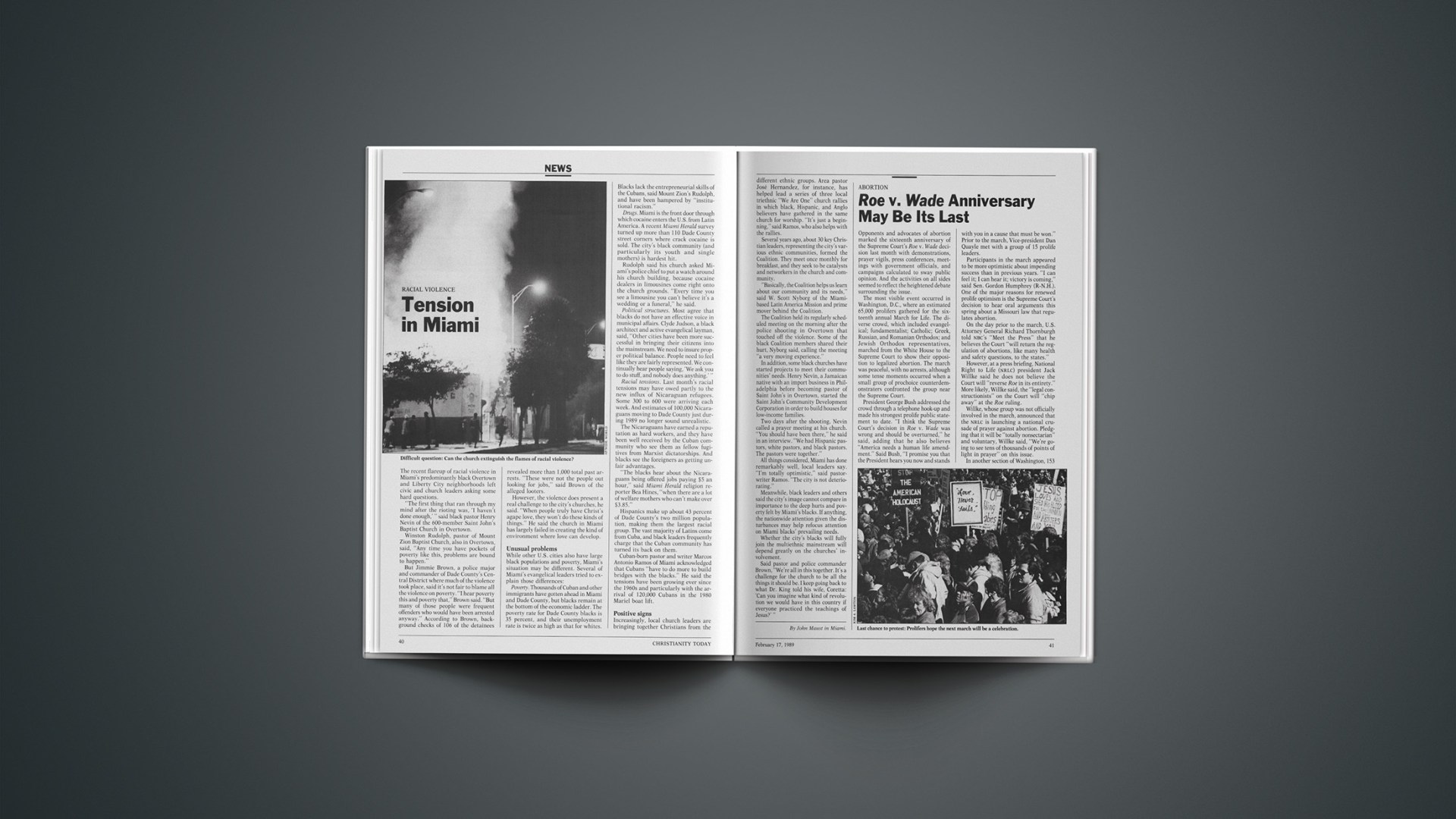In the final hours before his execution in Florida last month, convicted serial killer Theodore Bundy spoke at length with Focus on the Family president James Dobson.
At Bundy’s request, Dobson went to the Florida prison for a two-hour private discussion two days prior to the execution, and returned the day before the execution for a one-hour taped interview—Bundy’s last with news media. According to Dobson, “The main message of that hour was a message to the American people about pornography.”
Dobson told reporters Bundy blamed an addiction to hard-core pornography for his continual urge to commit murder. Dobson said Bundy began to buy pornographic magazines during his early teen years and gradually became obsessed with more and more violent, hard-core materials. Eventually, Dobson said, Bundy came to a point where only killing would “give him that high.”
Dobson said Bundy told of feeling remorse for his first killing, but that feeling faded. “He killed a second time, only this time the agony was easier to cope with,” Dobson said. “He got to the point where he didn’t have that remorse.”
Bundy was sentenced to death for three killings, but in the days before his death, he confessed to other murders. He once said the number of his killings could be in “three digits.”
When a Florida State Prison official waved a black flag signaling Bundy’s death, cheers rang out from a crowd that had gathered. The execution was Florida’s twentieth, and the nation’s one-hundred-sixth, since 1976.
Focus on the Family vice-president Paul Hetrick said Bundy wrote to Dobson in 1987, after becoming aware of the ministry’s broadcast and publications while in prison. Dobson answered the letter, which prompted further correspondence from Bundy. “The fact that Dr. Dobson had served on the Attorney General’s Commission on Pornography was known to Mr. Bundy,” Hetrick said.
Hetrick said that, as a clinical psychologist, Dobson was especially interested in “what led a person like Mr. Bundy into this life of deviant behavior.” Hetrick said Bundy “felt he was forgiven by God for his sins,” but according to Hetrick, Dobson “didn’t attempt to make a judgment on Mr. Bundy’s profession [of faith].”










